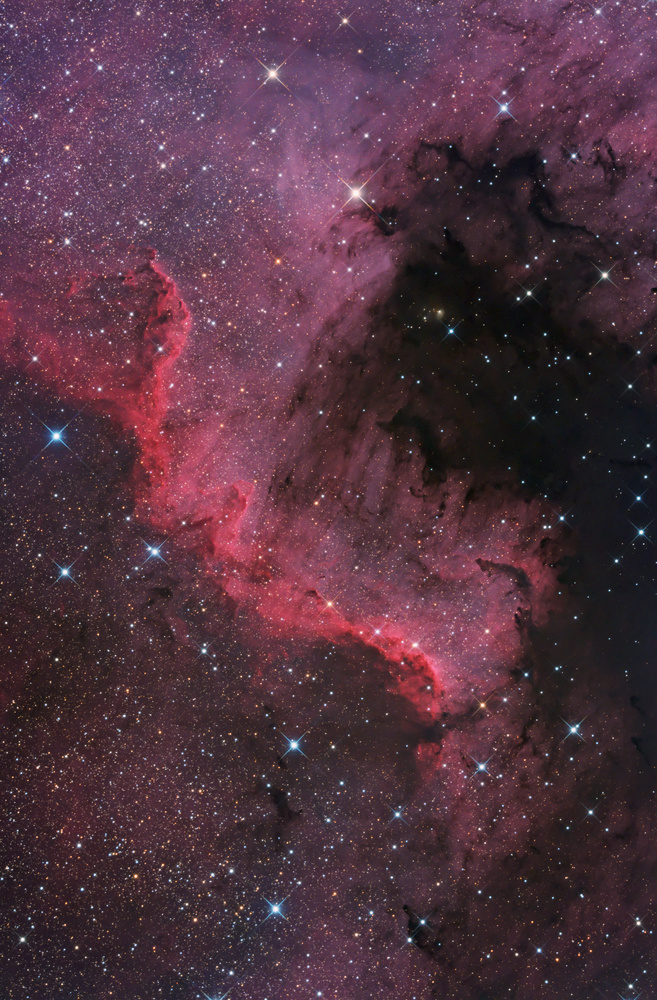|
Location / Date |
Zellerndorf, June - September 2014 |
|
Telescope / Mount / Guiding |
ASA 10" Astrograph, ASA 3" Wynne Corrector |
|
Camera / Exposure |
Canon EOS 500Da |
|
Processing |
Theli, Fitswork, PixInsight, Photoshop |
|
Notes |
The Great Wall (Cygnus Wall) is the southern part of the North America Nebula (NGC 7000) in the constellation Cygnus and exhibits the most concentrated star formations in the nebula. The North America Nebula is an emission nebula close to Deneb (the tail of the swan and its brightest star). The remarkable shape of the nebula resembles that of the continent of North America, complete with a prominent Gulf of Mexico. |
